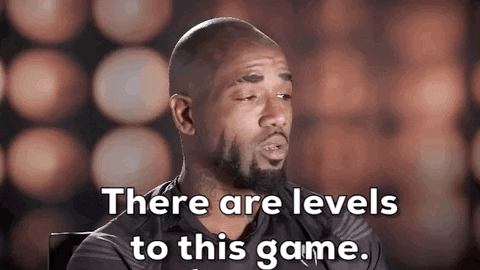'The Game' by A.S. Byatt
'There is nowhere I shall not drag this grotesque shadow, our joint creature.'—Review #222

This week’s review is going to be short because it’s our last newsletter of the year and I’m tired—and because this book didn’t do it for me. Yes, yes, I know it’s A.S. Byatt, and I know we all love ‘Possession,’ but even a titan can deliver a clunker.
Here’s the cover:

In my ‘True Grit’ newsletter, I asked for your help deciding whether to continue to struggle through ‘A Grain of Wheat’ by Ngūgī Wa Thiong’o or set it aside in favor of ‘The Game.’ Eighty-two percent of the vote was for this book. It explores the competitive and fraught relationship between sisters Cassandra and Julia. If you know something about Byatt’s life, you might think—aha!—this early novel must be related to her rivalry with her sister and fellow novelist, Margaret Drabble. That might capture part of it, but, in addition, Julia is a novelist and Cassandra is an academic, two aspects of Byatt’s career. So, you see:
Julia and Cassandra’s conflict has two focal points. One is a game they invented as children that’s part chess, part Risk and part Dungeons & Dragons. Cassandra was the Dungeon Master, conjuring characters and narratives that Julia would eventually appropriate into her own writing. The other is a man they each loved named Simon, who’s really into snakes. Julia appropriated him, too. When the novel opens in the late 1960s, the sisters apparently have been estranged for years—Julia, in a London flat with a husband (whom she’s cheating on) and a teenage daughter; Cassandra an awkward and necklace-laden Oxford don—but two events set them on a collision course. Their father suffers a stroke, forcing them to return to their childhood home. And Simon, who’s been living abroad for a decade, appears on television as host of a nature show that features philosophy and snakes, making it a highbrow precursor to:
Things come to a head when Simon returns to England and visits each sister. Will they all reconcile? Will their relationship be ruined forever? Who will end up with Simon? Will anyone get attacked by a snake? I will spoil nothing. But I will share two things that stuck with me. First, Julia’s marriage, which succeeds only in breeding resentment and grist for her novels, is a fascinating mess. At one point, her husband, a do-gooder named Thor, brings homeless families with infant children into their home to live without any advanced warning or plan. Julia tries to roll with it, but I had chills running down my spine thinking of how Donna would have gone bananas if I pulled a stunt like that. And second, randomly, I was excited to learn what a Black Watch tartan (which Julia wears as a skirt) is and that it looks kinda like this, but not really:
While there are some aspects to ‘The Game’ I enjoyed, overall this book didn’t work for me. It’s plodding and muddled, as you’ll read below, and I wasn’t sure what I was supposed to take away from it. In The Paris Review interview with Byatt I shared a few weeks ago, she indicates the book was intended partly as a critique of academe, but that was lost on me. Those of you who are Byatt completists or are interested in reading her early work might get a kick out of this book, but I didn’t find it that engaging. Even so, I’m glad I read it and that you guys chose it for me.
How it begins:
‘Come again soon,’ Julia said, arresting them again at the top of the stairs, smiling and pleading. ‘I mean it, I really mean it. You must come again.’ They laughed, drawn together by their departure, their faces pale and round above coat-collars already turned up against the cold. ‘Promise,’ said Julia, and they promised, and began to descend the turning staircase. Julia hung over the banister watching their dark heads protectively down three flights, saddened by the receding clatter of their feet. At the bottom they stopped and turned their moon-faces up to her. ‘Thank you,’ they called, and Julia cried, ‘We loved having you.’
She stood a moment twisting her rings on her fingers. She had several rings, all rather boldly designed and clean-cut, silver and bronze, hoops and bosses. Her hands seemed slightly heavy with them. She went back, then, into the flat.
In the attic living-room everything was warm. The wood fire was still alive in the hearth, and the room was hazy with soft smoke. The floor was polished bare boards, spread with long-furred rugs, and there were several low stools on which Julia would sit, her knees drawn up to her chin, close to the fire. There were earthy-brown coffee mugs squat on a low table, two stainless-steel bowls of fruit, a scarlet glass tray with liqueur glasses. Julia sniffed smoke and wine and was aware of worry. Somewhere, plates clashed.
My rating:

‘The Game’ by A.S. Byatt was originally published by Chatto & Windus in 1967. It was published by Vintage International in 1992. 286 pages. $20 at Biblio.
What’s next:

I haven’t figured it out yet, so it will be a surprise to us both when we return Jan. 7.
Before you go:
ICYMI: If you’re looking for some last-minute gift ideas, check out my favorite books from 2023:
Consider this: Last year, I was inspired to read ‘Middlemarch’ after seeing Book Post’s read-along. Recently, I saw on Bluesky a prompt to read another massive book—‘Black Lamb and Grey Falcon’ by Rebecca West. This 1,000-plus page travelogue about the former Yugoslavia has been gathering dust on my TBR pile for more than a decade. I’m excited to finally try tackling it next year!
If you enjoyed this review:
Thanks for reading, and thanks especially to Donna for editing this newsletter!
We’ll see you in:
MPV











I am sitting in a Black Watch tartan dress reading this review ( heading out to a holiday party)! I think Santa is bringing me Possession and I’ll see how it goes. I’ll skip this for now. Merry Christmas and Happy New Year to you and Donna!
Oh no! I hope a nicer book comes your way before 2023 ends